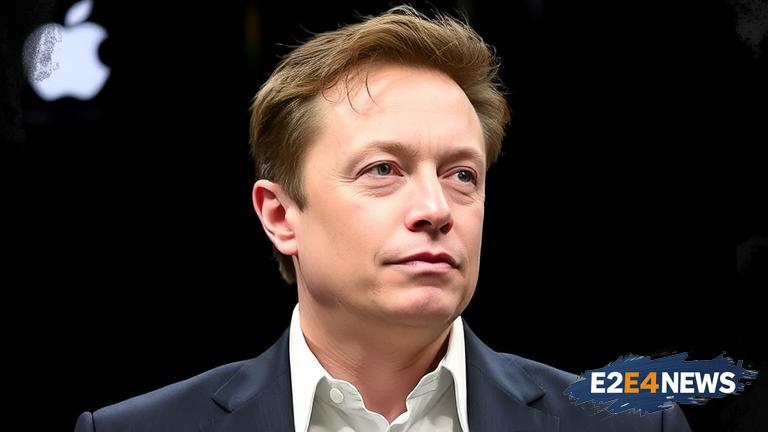In a recent development, Elon Musk’s artificial intelligence company, xAI, has taken Apple to court, accusing the tech giant of engaging in anti-competitive practices with its App Store policies. The lawsuit, filed in a US court, claims that Apple’s rules and guidelines for app developers are designed to stifle innovation and limit consumer choice. At the center of the dispute is xAI’s AI chatbot, Grok, which the company claims has been unfairly treated by Apple’s review process. According to xAI, Apple’s App Store reviewers have repeatedly rejected Grok, citing vague and inconsistent reasons. The company alleges that this is not an isolated incident, but rather part of a larger pattern of behavior by Apple to maintain its dominance over the app market. xAI claims that Apple’s actions are a clear violation of antitrust laws, which are designed to promote competition and protect consumers. The lawsuit also names OpenAI, another prominent AI company, as a defendant, alleging that it has colluded with Apple to suppress competition. Elon Musk, who is also the CEO of Tesla and SpaceX, has been a vocal critic of Apple’s App Store policies, calling them ‘monopolistic’ and ‘unfair’. The tech mogul has also expressed concerns about the impact of these policies on innovation and consumer choice. The lawsuit is the latest salvo in a long-running battle between Apple and app developers, who have complained about the company’s strict guidelines and high commission fees. xAI is seeking damages and injunctive relief, which could potentially force Apple to change its App Store policies. The case has significant implications for the tech industry, as it could set a precedent for how app stores are regulated and how companies like Apple are allowed to wield their power. The lawsuit also highlights the growing importance of AI and chatbots, which are becoming increasingly popular among consumers. As the use of AI-powered apps continues to grow, the need for clear and fair guidelines for app developers will become even more pressing. The case is likely to be closely watched by regulators, who have been scrutinizing the tech industry’s largest players for signs of anti-competitive behavior. In recent years, there have been numerous calls for greater regulation of the tech industry, particularly when it comes to issues like data privacy and app store policies. The European Union has already taken steps to regulate the tech industry, with the passage of the Digital Markets Act, which aims to promote fairness and transparency in the digital economy. In the US, lawmakers have introduced several bills aimed at regulating the tech industry, including the American Innovation and Choice Online Act, which would prohibit large tech companies from engaging in anti-competitive behavior. As the lawsuit against Apple makes its way through the courts, it will be interesting to see how the company responds to the allegations and whether the case will have any broader implications for the tech industry. The outcome of the case could have significant consequences for app developers, consumers, and the future of the tech industry as a whole. With the rise of AI and chatbots, the need for clear and fair guidelines for app developers has become more pressing than ever. The case against Apple is a reminder that the tech industry is still largely unregulated, and that companies like Apple have a significant amount of power and influence. As regulators and lawmakers continue to grapple with the challenges of regulating the tech industry, cases like this will be closely watched and will likely have a significant impact on the future of the industry.
